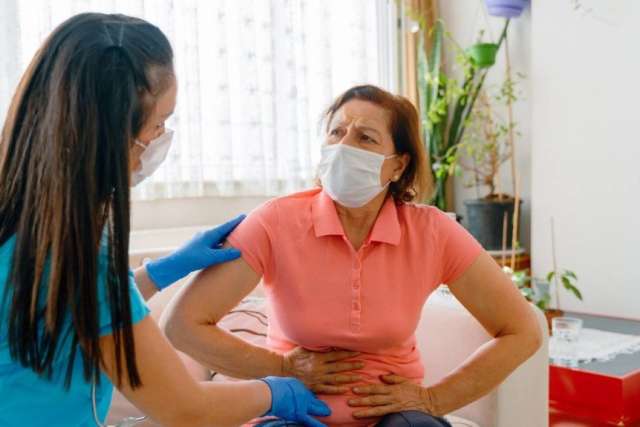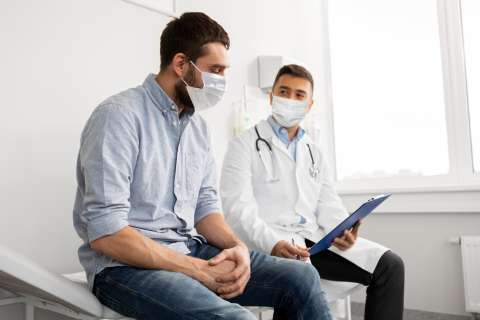Dear Doctors: I’m a healthy 69-year-old woman who ended up in the ER with painful cramps in my lower abdomen. I was diagnosed with diverticulitis and treated with antibiotics. A registered dietitian said I need more good bacteria in my gut. She suggests kombucha, kefir and yogurt. Can you suggest other foods to eat or avoid? Can diverticulitis be cured?
Dear Reader: The condition you’ve been diagnosed with begins when someone develops small bulges or saclike pouches, known as diverticula, in the lining of the gut. They can occur anywhere, but are most often found in the colon, also known as the large intestine.
Diverticula are fairly common, particularly in adults of middle and older age. The presence of these pouches is known as diverticulosis. In most cases, diverticula don’t cause problems or symptoms. But in some people, these bulges become inflamed or infected. When this happens, it is a condition known as diverticulitis. The suffix “itis” indicates the presence of inflammation.
As occurred in your case, diverticulitis can cause severe abdominal pain, often on the left side. Inflammation and infection associated with diverticulitis can also cause bloating, fever, nausea, vomiting, chills and changes to bowel habits, including constipation or diarrhea. In severe cases, the condition can be associated with bowel blockage, bleeding and tearing.
The antibiotics you received are a first-line treatment for diverticulitis. People are also advised to briefly follow a clear liquid diet to allow inflammation to abate, and to use pain relievers if needed. Unfortunately, there is no cure for the condition. When diverticulitis is severe or life-threatening, surgery to remove the affected area may be recommended. But in the majority of cases, the condition is managed with lifestyle changes. These include daily exercise, quitting tobacco products, and reaching and maintaining a healthy weight.

Studies have found individuals whose diets are heavy in red meat and low in fiber from natural food sources have an increased risk of developing diverticulitis. That makes limiting red meat, as well as added sugars and highly processed foods, a wise choice. The condition has also been linked to adverse changes to the gut microbiome. The kefir, yogurt and kombucha you have been advised to add to your diet are all fermented foods that contain beneficial bacteria. Others include pickles and sauerkraut that are made through fermentation, cheeses with live cultures, miso and kimchi.
Keeping the microorganisms in the gut adequately fed is also important. Fresh vegetables, fruits and leafy greens contain prebiotics, which is fiber our bodies can’t digest. It reaches the colon intact, where it provides food for the microbiome. Fiber also provides bulk for stool, which eases its passage through the colon.
People with diverticulitis are advised to add fiber to their diets gradually. Fiber can lead to gas, which can cause gastric distress. Although in the past someone with diverticulitis was warned against foods such as popcorn, nuts and seeds, newer research suggests they are not harmful. By coordinating with your dietitian and gastroenterologist, you will be able to craft a healthful and appropriate diet.
(Send your questions to [email protected], or write: Ask the Doctors, c/o UCLA Health Sciences Media Relations, 10960 Wilshire Blvd., Suite 1955, Los Angeles, CA, 90024. Owing to the volume of mail, personal replies cannot be provided.)



